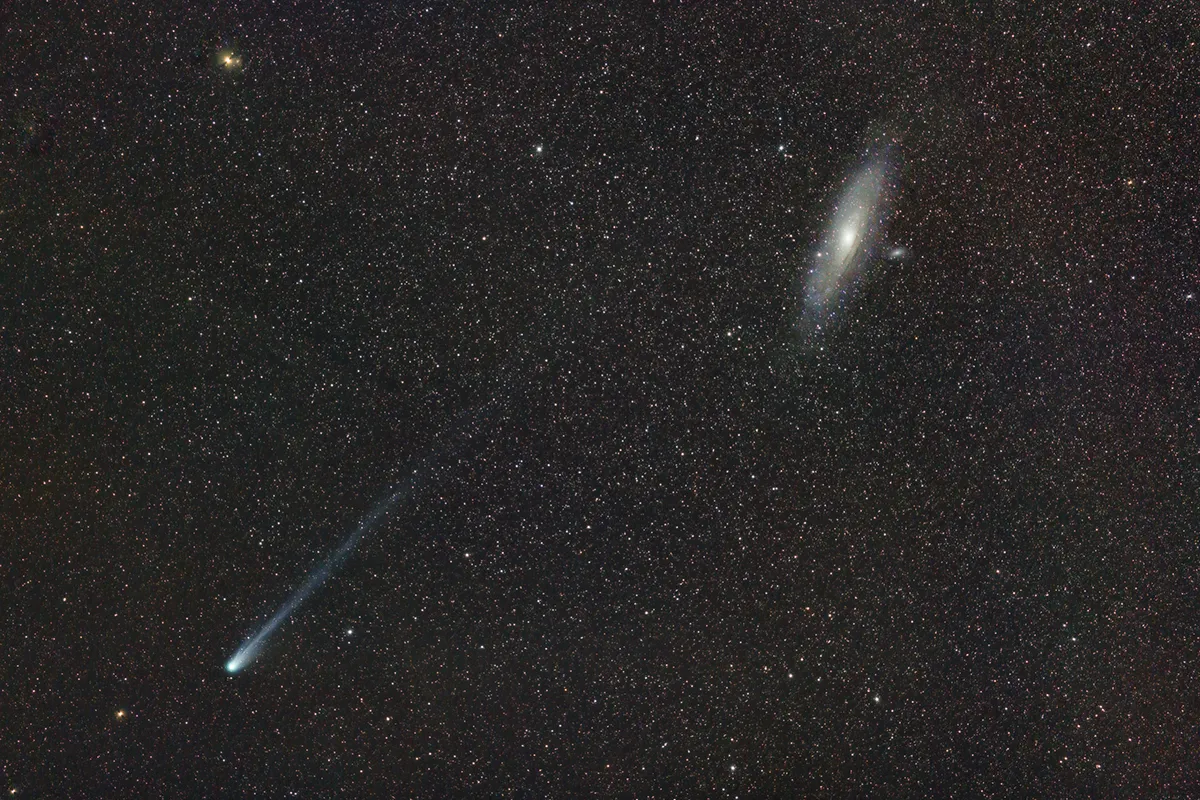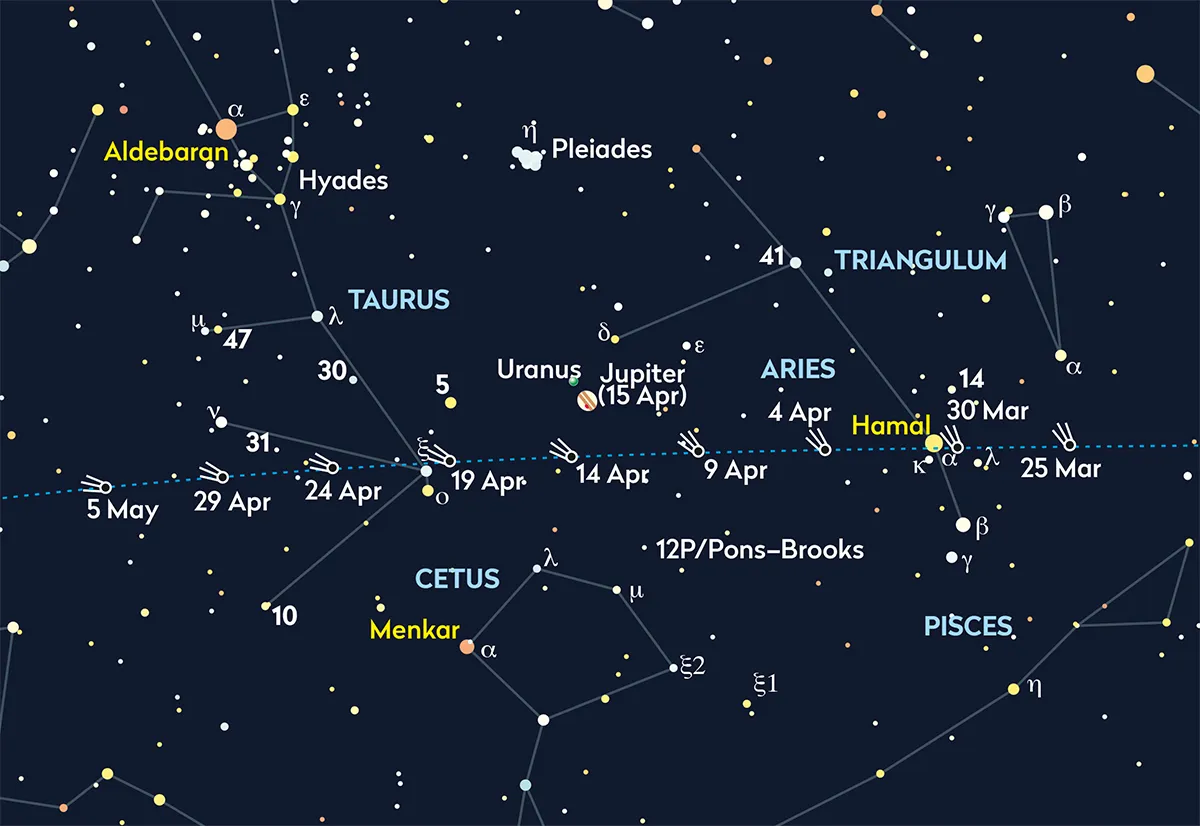A comet photographer has captured a spectacular image showing Comet 12P/Pons-Brooks and the Andromeda Galaxy together in the night sky.
Comet 12P/Pons-Brooks is currently on every comet-chaser's lips, and many have been out at night photographing the celestial visitor and its long tail.
José J. Chambó is a name known to many comet observers due to the prolific nature of his cometographic endeavours, capturing both lesser-known comets and those that make the headlines such as 12P/Pons-Brooks.
Want to capture it yourself? Read our guide on how to photograph a comet

Capturing the comet
12P/Pons-Brooks began March 2024 in the Andromeda constellation and is now heading into Pisces.
One particular conjunction that had astrophotographers licking their lips at the start of the month was the prospect of capturing Pons-Brooks near the Andromeda Galaxy.
And José has managed just that.
Of course, Pons-Brooks isn't actually near the Andromeda Galaxy: it just appears that way from our perspective on Earth.
The comet orbits our Sun, whereas the Andromeda Galaxy is about 2.5 million lightyears away.

José captured his image of Comet 12P/Pons-Brooks and the Andromeda Galaxy on 12 March 2024 at 19:41 UTC from Sierra de Enguera, Valencia, Spain.
He says: "I captured the comet when it offered us a beautiful conjunction with the Andromeda Galaxy (M31) within a wide starry field about 15 degrees wide.
"The comet, with a brightness of magnitude 5.5, showed a bluish ionic tail of at least 6 degrees in length.
"I had only just acquired the Canon EOS 6D, which is a very popular model among astrophotographers for its high quality, and this is the 'first light' I got with it.
"Lately we've been having very unsteady weather in Spain, I think all over Europe, and after waiting several days, finally on 12 March I had a clear evening to try to capture the conjunction of Comet 12P with the Andromeda Galaxy.
"I went up to a mountainous area about 50km from where I live, near an old farmhouse in Benali in the Enguera Sierra, located in the south interior of the province of Valencia. It's 725 meters above sea level, with a Bortle 3 sky and a clear western horizon.
"As night fell, the comet could already be seen through the camera's viewfinder, equipped with a 135mm f/2 telephoto lens. Shortly after centring the frame, I began shooting, resulting in this image."
Acquisition details
- Camera: Canon EOS 6D
- Lens: Samyang F2.0/135mm
- Mount: Meade LXD-75
- Exposure: 40 min. (40x60 sec. at ISO 800)
- Processing: PixInsight
You can see more of José's work via his website www.cometografia.es.
